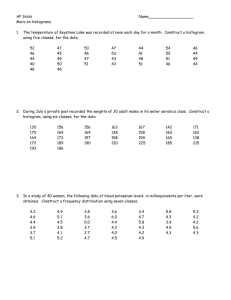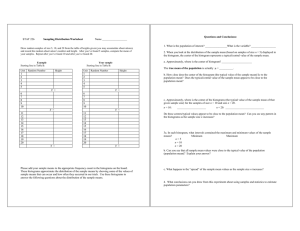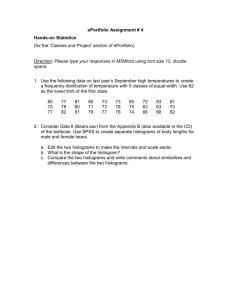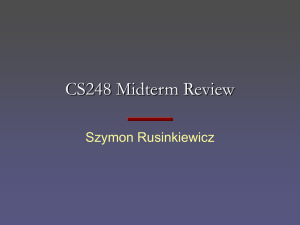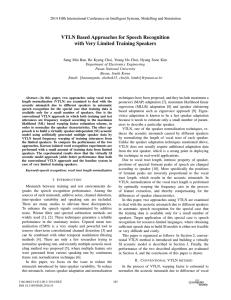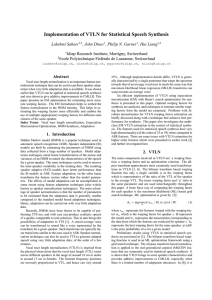Point Processing 15-463: Computational Photography Alexei Efros, CMU, Fall 2011
advertisement
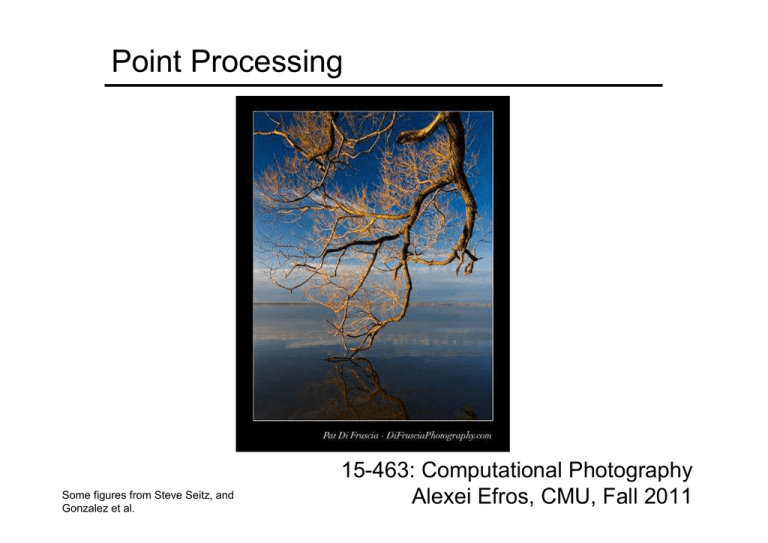
Point Processing Some figures from Steve Seitz, and Gonzalez et al. 15-463: Computational Photography Alexei Efros, CMU, Fall 2011 Image Processing image filtering: change range of image g(x) = h(f(x)) f f h x x image warping: change domain of image g(x) = f(h(x)) f f h x x Image Processing image filtering: change range of image g(x) = h(f(x)) f g h image warping: change domain of image f g(x) = f(h(x)) g h Point Processing The simplest kind of range transformations are these independent of position x,y: g = t(f) This is called point processing. What can they do? What’s the form of t? Important: every pixel for himself – spatial information completely lost! Basic Point Processing Negative Log Power-law transformations Image Enhancement Example: Gamma Correction s=r 1/ γ s=r γ e. g . 0.25 = 0.52.0 http://www.cs.cmu.edu/~efros/java/gamma/gamma.html Contrast Stretching Image Histograms Cumulative Histograms s = T(r) Histogram Equalization Color Transfer [Reinhard, et al, 2001] Erik Reinhard, Michael Ashikhmin, Bruce Gooch, Peter Shirley, Color Transfer between Images. IEEE Computer Graphics and Applications, 21(5), pp. 34–41. September 2001. Limitations of Point Processing Q: What happens if I reshuffle all pixels within the image? A: It’s histogram won’t change. No point processing will be affected…
